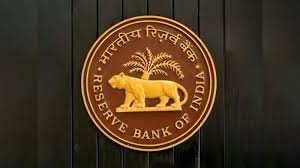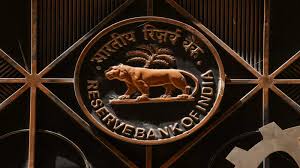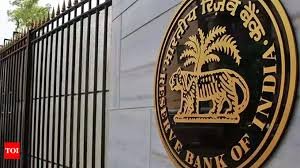RBI Bars Navi Finserv and Three Other NBFCs for Lending Violations
The Reserve Bank of India (RBI) has taken decisive action against Navi Finserv and three other Non-Banking Financial Companies (NBFCs) for significant violations of lending norms. This move highlights the RBI’s commitment to maintaining the integrity of the financial sector and ensuring compliance with established regulations. The NBFCs, namely Navi Finserv, IIFL Finance, Aditya Birla Finance, and Muthoot Finance, were found guilty of not adhering to the guidelines set forth by the RBI concerning fair lending practices.
Reasons Behind the RBI’s Action
The RBI’s intervention is primarily rooted in reports indicating that these NBFCs engaged in unfair practices, such as charging excessive interest rates and failing to provide adequate transparency to borrowers regarding the terms and conditions of loans. This not only undermines consumer rights but also poses significant risks to the financial system’s stability. The central bank’s action aims to rectify these practices and ensure that all lenders operate within a framework that protects consumer interests and promotes fair competition.
Implications for the Financial Sector
The prohibition on these NBFCs from engaging in new lending activities serves as a stern warning to the industry. It emphasizes the necessity for stringent adherence to regulatory standards. Financial institutions are expected to review their compliance measures and reinforce their lending processes to align with RBI guidelines. This initiative underscores the RBI’s role in fostering a stable financial environment that prioritizes ethical practices and consumer protection.
Future Prospects for the NBFCs
For the affected NBFCs, this action represents a critical juncture. While it temporarily halts their lending capabilities, it also provides an opportunity for them to reassess their operational strategies and rectify the violations. By taking corrective measures, these companies can eventually regain their lending privileges and restore consumer trust.

Why This News is Important
Ensuring Compliance in the Financial Sector
The RBI’s decision to bar Navi Finserv and the three other NBFCs is a pivotal moment in reinforcing compliance within the financial sector. It sends a clear message that deviations from established lending norms will not be tolerated. This not only protects consumers but also enhances the overall health of the financial ecosystem.
Protecting Consumer Rights
Consumer rights are paramount in financial transactions. The RBI’s action underscores its commitment to safeguarding borrowers from exploitative practices, such as predatory lending. By addressing these issues, the RBI helps to foster a fairer lending environment, ensuring that consumers are treated ethically and transparently.
Promoting Fair Competition
This crackdown on lending violations is crucial for promoting fair competition among financial institutions. When all players adhere to the same set of rules, it fosters a level playing field, which is essential for healthy market dynamics. The RBI’s actions will compel other NBFCs to evaluate their practices and align them with regulatory standards, enhancing competition based on service quality rather than unfair practices.
Impact on Economic Stability
A stable financial system is vital for the overall economic health of a nation. By taking strong action against non-compliant NBFCs, the RBI is working to mitigate risks that could lead to larger systemic failures. This proactive stance is crucial for maintaining investor confidence and promoting sustainable economic growth.
Historical Context
The regulation of NBFCs in India has evolved significantly over the years, especially in response to various financial crises and lending scandals. The RBI has been tasked with ensuring that these institutions operate within a robust regulatory framework to protect consumer interests and maintain financial stability. Previous incidents of misconduct in the lending sector have prompted the RBI to implement stricter regulations and oversight mechanisms. The recent actions against Navi Finserv and others reflect ongoing efforts to enhance transparency and accountability in the financial services industry, ensuring that similar violations are addressed promptly.
Key Takeaways from “RBI Bars Navi Finserv and Three Other NBFCs for Lending Violations”
| Serial Number | Key Takeaway |
|---|---|
| 1 | The RBI has barred Navi Finserv and three other NBFCs for violating lending norms. |
| 2 | Violations include excessive interest rates and lack of transparency in loan terms. |
| 3 | The action emphasizes the RBI’s commitment to consumer protection and fair lending practices. |
| 4 | Affected NBFCs are temporarily prohibited from new lending activities. |
| 5 | The incident highlights the need for strict compliance within the financial sector |
Important FAQs for Students from this News
1. What is the main reason for the RBI’s action against Navi Finserv and other NBFCs?
The RBI has barred Navi Finserv, IIFL Finance, Aditya Birla Finance, and Muthoot Finance for significant violations of lending norms, including charging excessive interest rates and lacking transparency in loan terms.
2. How does this action affect the NBFCs involved?
The action prohibits these NBFCs from engaging in new lending activities, impacting their operational capabilities. It serves as a warning for the entire financial sector to adhere to regulatory standards.
3. What are the implications of this action for consumers?
This action is important for protecting consumer rights, as it addresses unfair lending practices and promotes a fairer lending environment.
4. How does the RBI ensure compliance among financial institutions?
The RBI employs regulatory frameworks and conducts regular audits to ensure that financial institutions comply with established guidelines. Violations can lead to sanctions, including bans on lending.
5. What should consumers look out for in lending practices?
Consumers should be aware of interest rates, terms and conditions, and transparency regarding fees and charges when engaging with financial institutions.
Some Important Current Affairs Links













